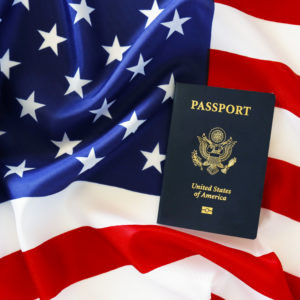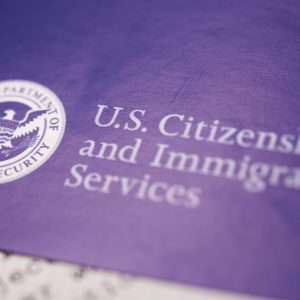Victims of Crime
U.S. immigration law is very generous with providing protection to victims of different crimes, abuse, violence and neglect. For example, U-visa for victims of crime and T-visa for victims of human trafficking both can lead to a green card. The Violence Against Women Act (VAWA) protects immigrants who suffered abuse at the hands of family members who are legal permanent residents and U.S. citizens. There are also special immigration programs which protect and assist abandoned, neglected or abused children in obtaining legal status, such as Special Immigrant Juvenile Status (SIJS). | ||
U-visa
The U nonimmigrant status (U visa) is set aside for victims of certain crimes in the U.S. who have suffered mental or physical abuse and are helpful to law enforcement or government officials in the investigation or prosecution of criminal activity. | ||
U Visa Qualifying Crimes
For a full list of the qualifying crimes, please see the USCIS page on U-Visas | ||
Law Enforcement Certification
A U-Visa application requires a USCIS certification form to be completed by a law enforcement agency that certifies the applicant was a victim of criminal activity and that he or she was helpful to the investigation or prosecution. The law enforcement agency can be police, prosecutors, child welfare departments — any state agency that investigates criminal activity. It is important to note that an arrest or successful prosecution of a suspect is NOT required for a U-Visa application to be approvable. | ||
Path to Green Card
If approved, the applicant receives U-Visa nonimmigrant status for four years and receives employment authorization. Certain family members are eligible to be included in the application as derivatives. After continuously residing in the U.S. for three years, the immigrant is eligible to file for a green card. | ||
T-visa T-visa is a non-immigrant visa is set aside for victims of human trafficking, through the use of force, fraud, or coercion for sex or involuntary servitude. For example, an adult woman who was promised a job as a housekeeper and a U.S. work visa once she arrived in the U.S. and instead she is forced to work for minimal compensation would qualify as a victim of human trafficking. It is not necessary to demonstrate that she “knew” that she would be subjected to prostitution or slavery (or any other form of human trafficking). T visa applicants will also need to show “extreme hardship involving unusual and extreme harm” if they are forced to leave the U.S. T-visa applicants are encouraged to obtain Law Enforcement Declaration, but are not required to obtain it. | ||
Path to Green Card If approved, the applicant receives T-Visa nonimmigrant status for four years and receives employment authorization. Certain family members are eligible to be included in the application as derivatives. After continuously residing in the U.S. for three years, the immigrant is eligible to file for a green card. | ||
VAWA Under the Violence Against Women Act (VAWA), spouses, children and parents of United States citizens or lawful permanent residents may request lawful permanent residency if they have been the victims of domestic violence. VAWA applies to both abused men and women. The person applying must have been legally married in good faith to a U.S. citizen or lawful permanent resident. | ||
VAWA does not require violence. Emotional or psychological abuse also qualifies. The law requires the victim to prove they were subjected to “extreme cruelty”, which can include threats, verbal abuse, harassment, intimidation, isolation, economic abuse, threats to report to ICE and other forms of emotional abuse, without the necessity of physical abuse. Our office has had great success obtaining VAWA status for women and men who were subject to various forms of cruelty or violence. In these applications, a police report of the abuse is helpful, but not necessary. We have been able to succeed in winning these cases with statements from witnesses including family members. | ||
This law applies even if the person applying is undocumented, and entered the United States illegally. If the VAWA application is granted, the person’s unlawful presence here is forgiven, and they become eligible for a green card. As with any family case, two separate applications must be filed (the petition Form I-360) and the one for residency. | ||
Please note that the abuse must have occurred in the United States. What is abuse happened outside the United States? In this case, abuse survivors could potentially apply for asylum if they fled their country to escape domestic violence. | ||
If abused immigrant is a conditional resident due to the filing of lawful permanent residency through marriage, the filing is within two years of marriage, and the conditional resident has suffered battery or extreme cruelty, the resident may file to remove conditions without the abusive spouse’s participation using one or all of the waivers: good faith marriage with a divorce, battered spouse waiver and/or demonstration of extreme hardship. | ||
Special Immigrant Juvenile Status (SIJS) Children who have been abused, abandoned or neglected by a parent can self-petition for classification as Special Immigrant Juvenile Status (SIJS). Such classification allows for a child to obtain lawful permanent residence. | ||
1. Step One: State Court Finding of Neglect, Abuse, or Abandonment A child is eligible for Special Immigrant Juvenile Status only if a court in the state where he or she lives finds the child is neglected, abused, or abandoned by one or both parents, and that it is not in the child’s best interest to return to his or her home country. Court terms, procedures, and legal standards vary from state to state. | ||
2. Step Two: Petition for Special Immigrant Juvenile Status Once a state court has found that the child was abused, neglected, or abandoned, and that it is not in his or her best interest to return to his or her home country, the child may file a petition with USCIS requesting Special Immigrant Juvenile Status. It is important to note that the child must file the petition while the court order is still in effect. In most cases, this means that the child must file the petition before turning 18 years old, in other instances, before turning 21 years old. | ||
3. Step 3: Application for Permanent Residency Juveniles that have been granted SIJ status are eligible to file for Permanent Resident Status (green card). In some cases, there is a waiting period before the child can file a green card application. | ||
Our law office partners with family law practitioners who are expert at obtaining the pre-requisite state court orders and once the order has been obtained, we file for SIJS classification. Our office can apply for this relief regardless of whether or not the child is in removal proceedings, and we have helped many children gain permanent resident status to secure their futures for the rest of their lives. |






